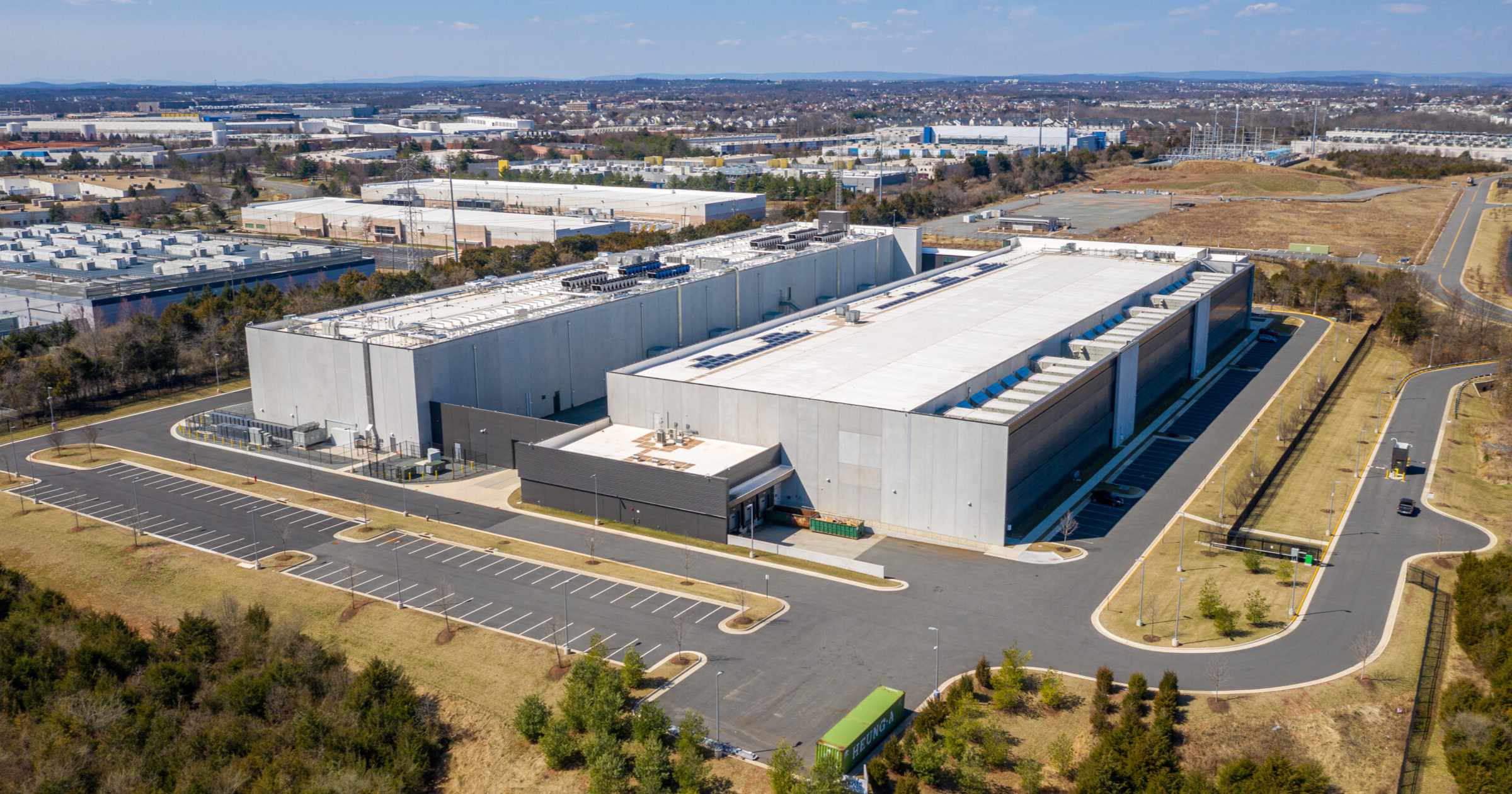
The explosive growth of the data center industry in Virginia has become a major concern of residents throughout the state, as it requires massive amounts of often undeveloped land, and equally massive amounts of public investment in the electric grid, threatening the ability of Virginians to achieve a clean energy future. Northern Virginia has the highest concentration of data centers of anywhere in the world. These data centers represent the only growing sector of electricity demand in Virginia, which is projected to more than double its peak load by 2040.
To meet the power needs of the industry, an expensive grid expansion has been proposed that will lead to continued reliance on fossil fuels. Ratepayers will be forced to pay for this expansion through increased rates. Massive data center buildings, substations, transmission lines, and power generation facilities convert large expanses of land from forest and agriculture into fields of impervious surface, harming wildlife habitat, water quality, and food and fiber production. Due to the potential tax revenue that comes from data centers, localities have been willing to approve these developments in sensitive locations like over historic gravesites, wetlands, stream corridors, and nature trails. Finally, the thousands of commercial-sized, highly-polluting diesel generators installed for backup power will likely be used more frequently as the grid becomes more constrained.
Regardless of these concerns, Virginia localities continue to approve more data center development and the state is encouraging it through subsidies. One of these projects, known as the Prince William Digital Gateway, involves a long-range plan to convert 2,133 acres across Prince William County, Virginia, into 27 million square feet of data centers, making for the largest conglomeration of data centers in the world. The project threatens the quality of the Occoquan Watershed and drinking water for 800,00 people in the region, and being sited next to the Manassas National Battlefield and state forest, threatens the historic and sylvan landscape. CLA stepped in to assist after a coalition of 56 homeowners associations in northern Virginia reached out requesting urgent assistance. CLA staff and network attorneys engaged in legal research and developed strategic challenges to poorly-sited data center projects based on local laws, developed messaging and prepared coalition members for media appearances, and assisted the coalition in finding and vetting long-term counsel.
CLA will continue to assist communities in Virginia and across the watershed to fight this unchecked development, but we need your help. Please join us and help sustain our fight to stop this destructive trend—we can’t do it without your support.
During the 2023 Choose Clean Water Conference, CLA Staff Attorney, Will Halnon, shared his research and advice for challenging the siting of data center projects on or near environmentally sensitive lands in a presentation and workshop titled “Data Centers in the Chesapeake Bay Watershed.” Will also serves as a member of the Virginia Data Center Reform Coalition, a partnership of various environmental and community groups across Virginia focused on implementing legislative data center reform.